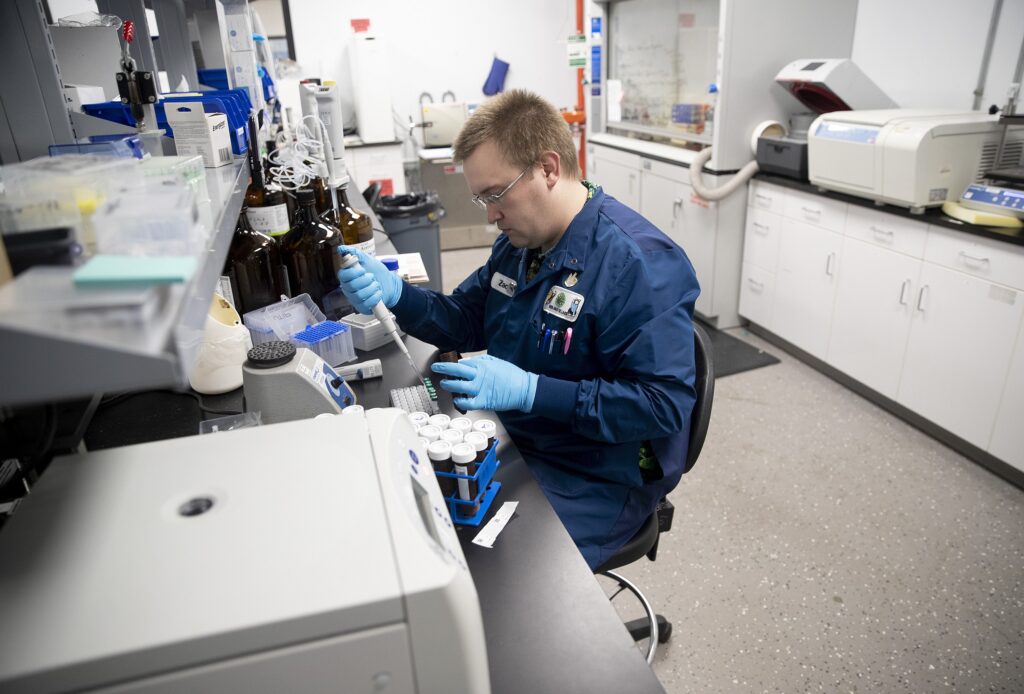A series of cannabis recalls in short succession has industry members questioning the effectiveness of Maine’s cannabis testing protocols.
Maine’s Office of Cannabis Policy issued its first recall for contaminated recreational products in September. Two more recalls and one expansion swiftly followed suit and more are expected as the office ramps up auditing. All of the recalls were for failed mandatory yeast and mold tests.
On the heels of these recalls, which have contained little information about the circumstances for the failures, industry members are calling for an examination of the state’s standards for yeast and mold, which they say are simultaneously too tight, with 10,000 colony-forming units per gram limit, and too broad, encompassing both dangerous and beneficial microbes.
Yeast and mold are the most common contaminants that cause a sample to fail a test, and mold is the hardest test to pass because it’s so prevalent in the natural world. But it’s important to monitor. According to the Office of Cannabis Policy, inhaling cannabis containing unsafe levels of mold can lead to sinus issues, allergies, headaches, dizziness and fatigue, as well as more serious infections.
Matt Hawes, co-founder of the Maine Cannabis Industry Association, wouldn’t take a position on the testing standards – he’s “not a scientist,”– but he said it would be worthwhile to bring in an expert or consultant to look at the regulations.
“Before anyone races to any conclusions around the safety of these products, there needs to be a discussion around the current pass/fail thresholds for some of these analytes,” he said. “I think we should be looking at whether we’re actually dealing with unsafe product or just noncompliant product. Those could be two different things.”
The recalled samples varied widely in the severity of contamination, but so far, the office has not released the numbers publicly. According to Vern Malloch, deputy director of operations for the state office, the two lowest counts were 11,000 and 34,000 colony-forming units per gram – numbers that would have passed in a state like Connecticut, which has a 100,000-unit limit.
Others were more egregious. One sample came back at 490,000 units per gram, and “in two instances, the lab reported it was simply too numerous to count,” Malloch said.
Malloch would not say which numbers correlated with which recall and said he could not provide the certificates of analysis from the labs until the office completed its investigation.
Since the recreational market launched in 2020, Maine labs have tested almost 44,000 samples with an average 6.7% failure rate.
The vast majority of samples failed for yeast and mold. Flower, or “usable cannabis,” has a particularly high yeast and mold fail rate of around 15%.
H/T: www.sunjournal.com



